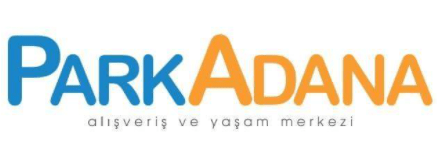SZUTEST Energy
SZUTEST places great importance on energy efficiency. SZUTEST is an Energy Efficiency Consulting (EEC) company authorized by the Ministry of Energy to operate in the “building” sector in 2016 and the “industry” sector in 2019 to conduct qualified and effective activities in this field.
ENERGY EFFIENCY
Energy is simply the ability to conduct business. We can define energy efficiency as conducting business by consuming less energy without sacrificing the quality and nature of a job, for example, without causing a decrease in the standard of living and service quality in buildings, and production quality and quantity in industrial organizations.
- Energy Audit
- Energy Management Service (EM)
- PEP (Productivity Enhancing Project)
- ESCO Business Model (Energy Performance Contract)
- Ministry Grants
Energy savings of up to 30% are possible!
While conducting energy audits, it is aimed to:
- Reveal the possibilities for increasing energy efficiency in businesses,
- Evaluate the recovery potential of waste energy and reveal the energy production potential based on renewable resources,
- Reduce the burden of energy costs on businesses.
To determine the savings potential to reveal the opportunities that will provide efficiency, calculations are made based on the information collected through inspections and measurements in the businesses, and the issues related to the measures/investments that will increase the efficiency are evaluated with their technical and financial dimensions and reported.
Within the scope of the activities, the following audit profiles are handled on an annual basis.
- Input Profile
- Waste Profile
- Loss and Leakage Profile
- Inefficiency Profile
- Wastage Profile
- Emission Profile
- Energy Management Profile
Energy audits are powerful tools to uncover operational and equipment improvements that will lead to energy savings, lowering energy costs, and higher performance.
ENERGY AUDIT STAGES
- Opening Meeting
- Site Tour
- Site Assessment and Preparation of the Measurement Program
- Taking Measurements, Observation, and Detailed Examinations
- Closing meeting
- Analysis of Measurement Data
- Evaluation of Analyzes
- Production of Projects in Potential Areas
- Preparation of the Audit Report as per the Ministry Format
- Submission and Presentation of the Report
An energy audit is required,
- Every 4 years in industrial businesses with an annual energy consumption of 1000 TOE and above,
- Every 7 years in private sector buildings operating in the trade/service sector with an annual energy consumption of 500 TOE and/or a total construction area of 20,000 m2 or more,
- Every 7 years in public sector buildings with an annual energy consumption of 250 TOE and above and/or a total construction area of 10,000 m2 or more.
* Liable facilities must also appoint an Energy Manager and have ISO 50001 Certificate.
An energy manager is a person who has received energy management training and has an energy management certificate. Within the scope of the “Energy Management” service, the following tasks are undertaken by assigning a “Certified Energy Manager” to the name of the facility.
- Making suggestions for the effective and efficient use of energy,
- Establishing an energy policy that defines goals and priorities for energy management; defining the position, duties, authorities, and responsibilities of the energy manager or energy management unit in the hierarchical structure; informing all employees and persons related to energy management activities by publishing them as written rules,
- Determining and promoting the measures and procedures to be taken to improve consumption habits, prevent unnecessary and unconscious use, organize training programs to increase the level of knowledge and awareness of employees,
- Identifying and implementing modifications to energy-consuming systems, processes, or equipment,
- Conducting studies, following up, preparing, and implementing projects,
- Monitoring the efficiency of energy-consuming equipment, and ensuring timely maintenance and calibration,
- Evaluation of new machinery and equipment to be purchased in terms of energy efficiency,
- Preparation of energy needs and efficiency-enhancing practices, plans, budget needs, benefit, and cost analyses to be submitted to the management,
- Monitoring and evaluating energy consumption and costs and generating periodic reports,
- Procuring, installing, and calibrating the meters and measuring devices needed to monitor energy consumption on time,
- Monitoring the specific energy consumption, the relationship between the production of goods or services and energy consumption, energy costs, the energy intensity of the business, and preparing suggestions for improvement,
- Researching the possibilities of changing the energy composition and using alternative fuels, preparing and implementing measures to protect the environment, reduce harmful emissions to the environment, and not exceed the limit values,
- Preparation of alternative plans to reduce the use of petroleum products and natural gas to be implemented in case of energy supply interruption,
- Sending annual information on energy use and studies on energy management to the General Directorate by the end of March every year,
- Determination of carbon dioxide emissions in total and per unit product or benefit and the number of emissions that can be reduced by energy efficiency measures.
Click for ISO 50001 System Certification Service. (https://www.szutest.com.tr/iso-50001-2011/)
SZUTEST Energy manages the whole process for you to benefit from ministry grant!
Apply now to benefit from ministry grant!
- EFFICIENCY–ENHANCING PROJECT SUPPORT
Grant support is provided for the implementation of Efficiency Enhancing Projects (EEP) in Industrial Businesses within the scope of the “Energy Efficiency Law” numbered 5627 and entered into force on 18/4/2007 and the “Regulation on Increasing the Efficient Use of Energy Resources and Energy”, numbered 28097 and dated 27/10/2011.
The maximum support rate is 30% and is limited to a maximum of 5,000,000 TL for a support period and 5 projects.
- VOLUNTARY AGREEMENT SUPPORT
Within the scope of the “Energy Efficiency Law”, numbered 5627 and dated 18/4/2007, and the “Regulation on Increasing Efficient Use of Energy Resources and Energy”, numbered 28097 and dated 27/10/2011, a Voluntary Agreement was made in Industrial Businesses and if the business undertakes to reduce its energy intensity by at least ten percent on average in the three years after the agreement is made, 20% of the energy consumption of the contracted year is covered in the form of a grant.
- FIFTH REGION INCENTIVES
Energy Efficiency Investment Projects, in which industrial businesses that meet the specified application criteria, undertake that they will save at least 20% of energy with the investment they will make and that the investment will return within a maximum of 5 years, are evaluated and supported within the scope of the fifth region incentives within the framework of the provisions of the “Decree on State Aids for Investments” and the “Communiqué on the Implementation of the Decree on State Aids for Investments (Communiqué No: 2012/1)”.

CARBON FOOTPRINT
Carbon footprint is the study of calculating the carbon dioxide (CO2) equivalents of the greenhouse gas effects resulting from activities such as production, service, and processing determined by the Kyoto Protocol.
Carbon footprint calculation should be done before the carbon footprint reduction process.
for Carbon Footprint calculation and verification!
EPC (ENERGY PERFORMANCE CONTRACTS)
Szutest Energy is also an ESCO (Energy Saving Company). It provides financial-investment support for the implementation of energy efficiency-enhancing projects.
Within the scope of EPS service, we offer turnkey services from the very beginning of the energy audit to the measurement and verification of savings including designing an energy saving project valid at the customer’s facility, creating a mechanism for the financing of the project, the technical implementation of the project and guaranteeing the energy savings to the operation.
Share of Savings
Worldwide advantageous financing mechanisms have been established specifically for such projects to finance the project with outsourcing. These include advantageous/concessional loans provided by World Bank Funds, European Commission Funds, and Development Finance Institutions.

































































